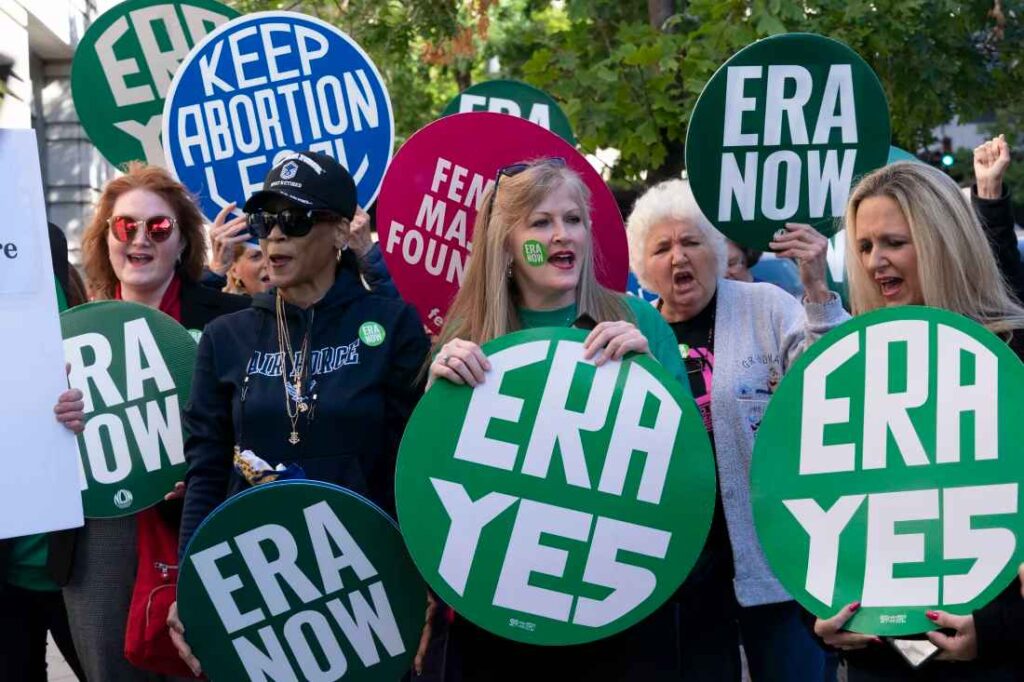In a significant moment for gender equality in the United States, President Joe Biden recently declared the Equal Rights Amendment (ERA) as law. This announcement has sparked widespread discussion across the political landscape, igniting both hope and skepticism.
But what does this really mean? Is the ERA officially part of the U.S. Constitution, or is this just a symbolic gesture? Let’s dive into the details.

A Historic Announcement
On a day that many advocates for gender equality have long awaited, President Biden stood before the nation and proclaimed the ERA as law.
This amendment, which aims to guarantee equal legal rights for all American citizens regardless of sex, has been a topic of debate since it was first proposed in 1923. After decades of advocacy, Biden’s declaration felt like a monumental victory for those who have tirelessly fought for gender equality.
However, the announcement was met with mixed reactions. While many celebrated the declaration as a step forward, others questioned its legal standing. The ERA requires ratification by three-fourths of the states to officially become part of the Constitution. While it has garnered significant support, its path to official recognition remains unclear.
The Legal Debate
Legal scholars and experts have weighed in on the implications of Biden’s announcement. Some argue that this move is more political than legal.
“The ERA is not officially part of the Constitution until it is ratified by the necessary number of states,” explains Dr. Emily Carter, a constitutional law expert. “While the President’s announcement is a powerful statement, it does not change the legal status of the amendment.”
On the other hand, some legal analysts believe that Biden’s declaration could reignite momentum for the ERA.
“This could be the catalyst needed to push more states to ratify the amendment,” says Professor Mark Thompson, a specialist in gender law. “The political implications are significant, and it could lead to a renewed focus on gender equality issues.”
Voices from the Frontlines
Activists who have championed the ERA for years are cautiously optimistic.
“This is a historic moment, and we are grateful for the support from the Biden administration,” says Sarah Johnson, a leading ERA activist. “However, we must remain vigilant. The fight for equality is far from over, and we need to ensure that the amendment is officially recognized.”
Politicians from both sides of the aisle have also weighed in. Some Democratic leaders have praised the announcement as a victory for women’s rights, while Republicans have expressed skepticism about its legal ramifications.
“We need to focus on practical solutions for women rather than symbolic gestures,” stated Senator Tom Reed, a vocal opponent of the ERA.
As the dust settles on Biden’s announcement, one thing is clear: the conversation surrounding the Equal Rights Amendment is far from over.
While the declaration has sparked hope and renewed energy among advocates, the legal status of the ERA remains uncertain. The path to official recognition is fraught with challenges, but the commitment to gender equality continues to resonate across the nation.
In the end, whether or not the ERA is officially law, the dialogue it has generated is invaluable. It reminds us that the fight for equality is ongoing and that every voice matters in shaping the future of our society.
As we move forward, let’s keep the conversation alive and work together to ensure that equality is not just a dream, but a reality for all.


Pingback: Equal Rights Amendment: Why Biden’s Announcement Matters for Women’s Rights and Abortion Laws - Dear Lottery
Pingback: Equal Rights Amendment Explained: Current Status, History!